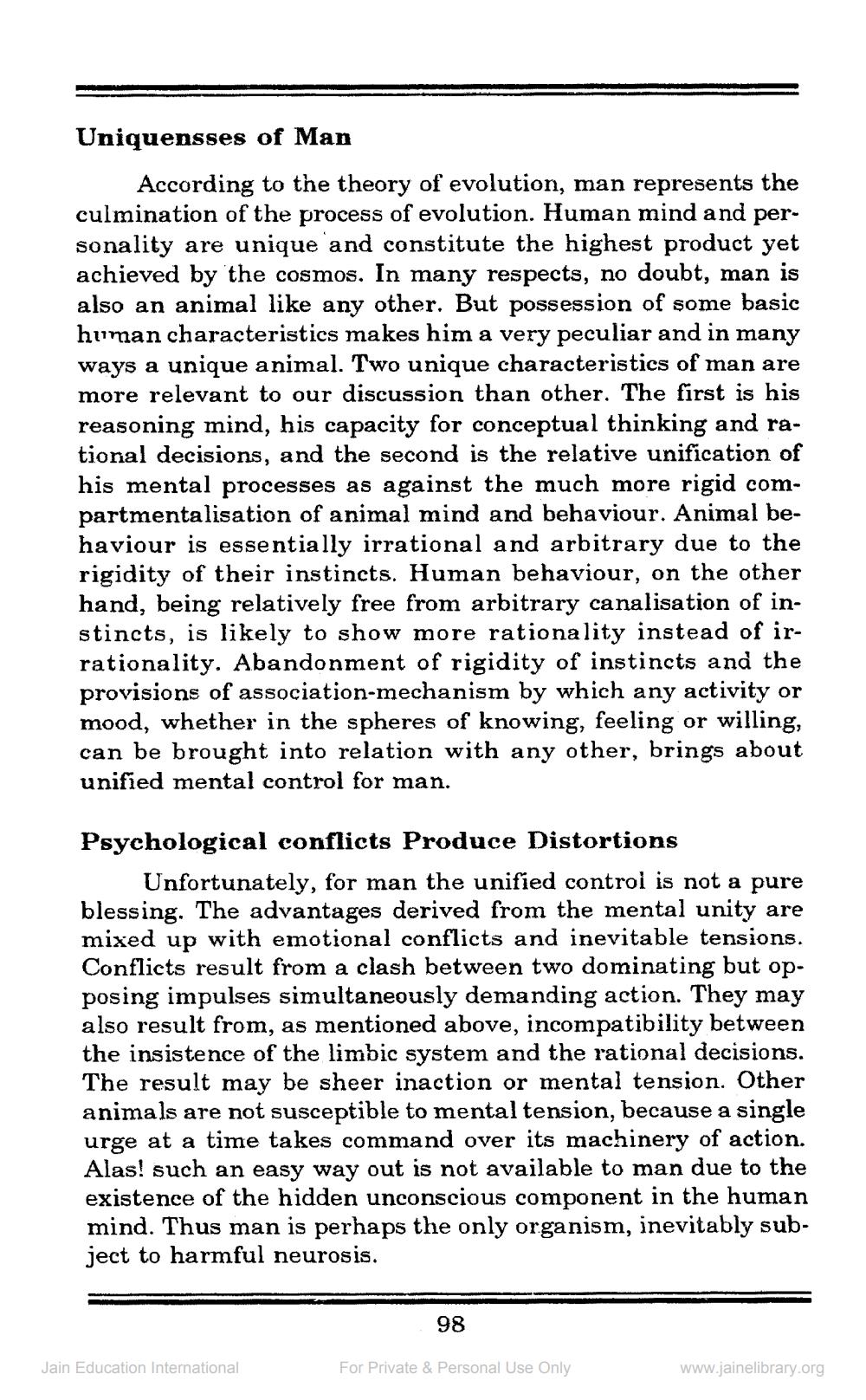________________
Uniquensses of Man
According to the theory of evolution, man represents the culmination of the process of evolution. Human mind and personality are unique and constitute the highest product yet achieved by the cosmos. In many respects, no doubt, man is also an animal like any other. But possession of some basic human characteristics makes him a very peculiar and in many ways a unique animal. Two unique characteristics of man are more relevant to our discussion than other. The first is his reasoning mind, his capacity for conceptual thinking and rational decisions, and the second is the relative unification of his mental processes as against the much more rigid compartmentalisation of animal mind and behaviour. Animal behaviour is essentially irrational and arbitrary due to the rigidity of their instincts. Human behaviour, on the other hand, being relatively free from arbitrary canalisation of instincts, is likely to show more rationality instead of irrationality. Abandonment of rigidity of instincts and the provisions of association-mechanism by which any activity or mood, whether in the spheres of knowing, feeling or willing, can be brought into relation with any other, brings about unified mental control for man.
Psychological conflicts Produce Distortions
Unfortunately, for man the unified control is not a pure blessing. The advantages derived from the mental unity are mixed up with emotional conflicts and inevitable tensions. Conflicts result from a clash between two dominating but opposing impulses simultaneously demanding action. They may also result from, as mentioned above, incompatibility between the insistence of the limbic system and the rational decisions. The result may be sheer inaction or mental tension. Other animals are not susceptible to mental tension, because a single urge at a time takes command over its machinery of action. Alas! such an easy way out is not available to man due to the existence of the hidden unconscious component in the human mind. Thus man is perhaps the only organism, inevitably subject to harmful neurosis.
Jain Education International
98
For Private & Personal Use Only
www.jainelibrary.org




